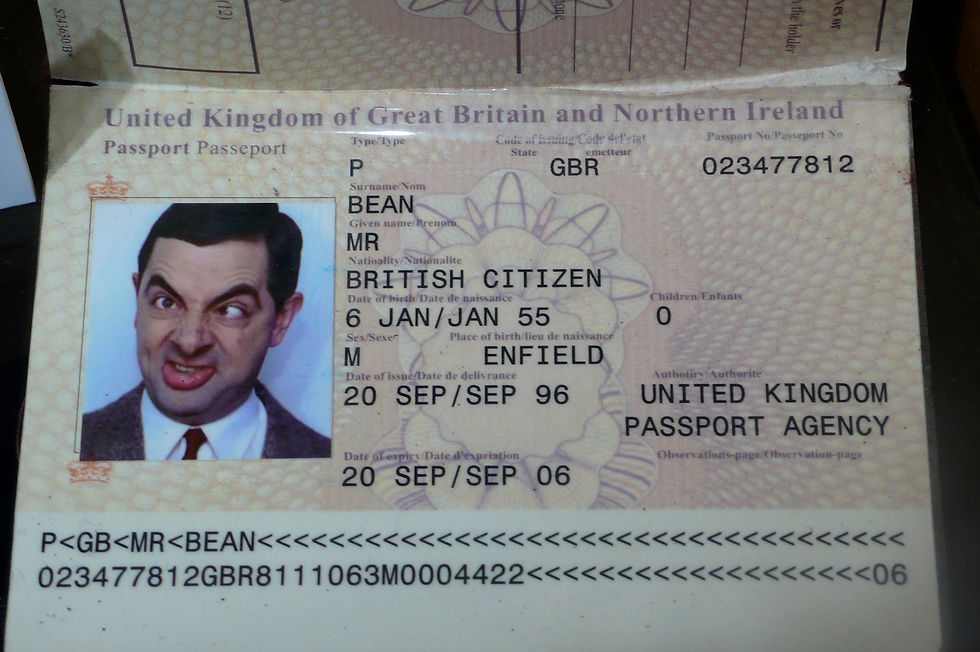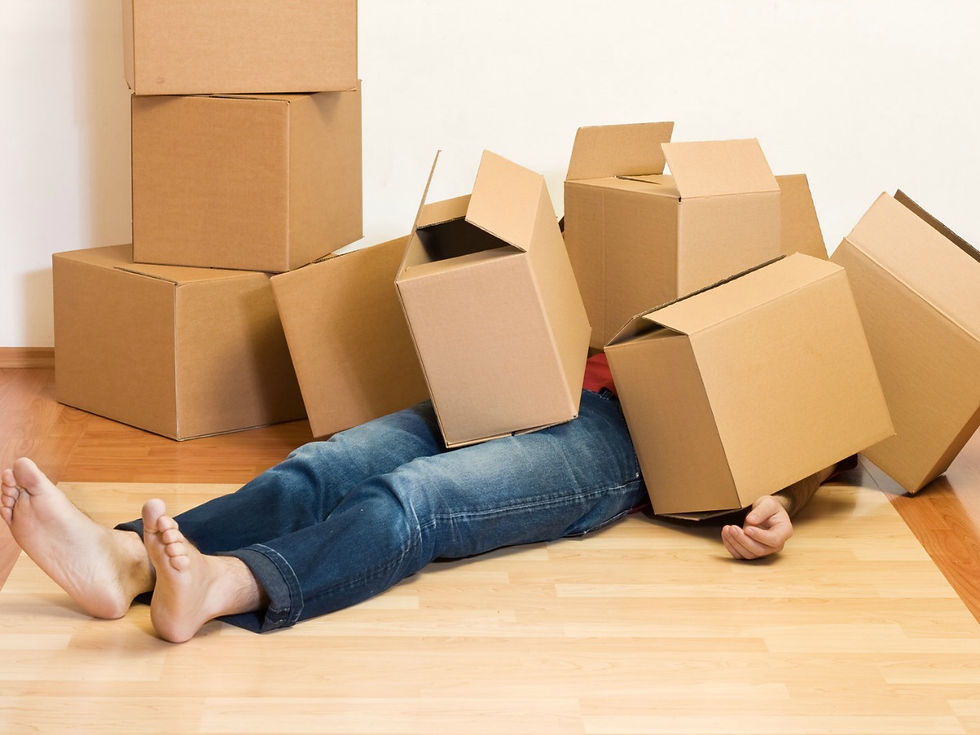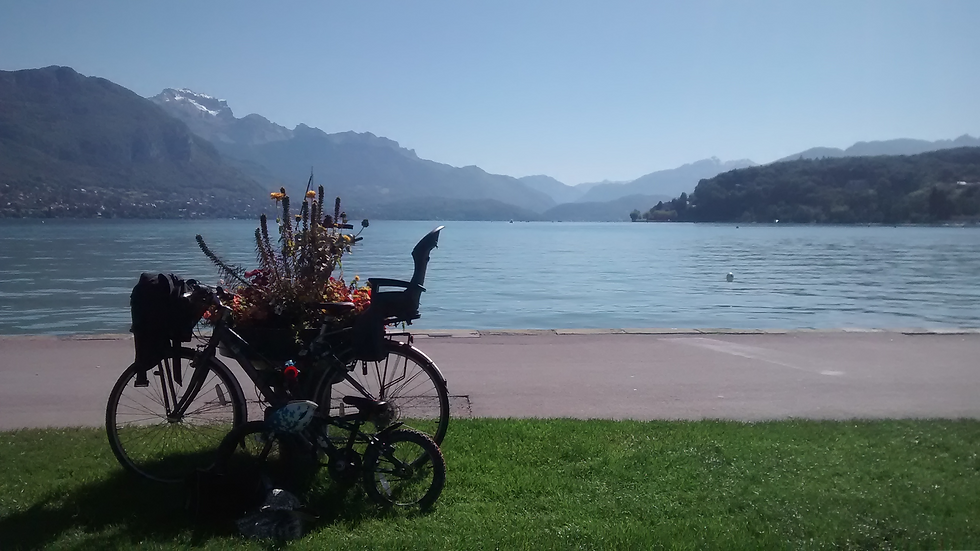The Key to a Seamless Move is Simply.... a Plan!
- Bernie
- Feb 9, 2024
- 9 min read
Updated: Nov 10, 2025
You're in the throes of planning your move to Annecy. You're excited but you're also stressed with what feels like a whirlwind of decisions. You need to finalise administrative things in your home country, decide where you might want to live, start sorting out what you want to take and what to leave behind. Then you need to start organising the logistics of the move itself. All of this alongside your 'normal' work and family life. Having a bit of down time to think about your 'new' life in France might seem like a distant challenge. This post is going to address these issues because after all, the key to a seamless move is simply a plan, right? Let's take a look at what this might mean for you.

So, what do you need to prepare? Let's take a look....
Documents
Do you know which documents you need?
If no, check with the nearest French embassy in your home country or in France. Click on the links provided for the following countries:
If you are still unclear about what type of visa you should apply for, check with an immigration lawyer. You don't want to start applying for a certain type of visa only to find out later on that it's not the best option for you.
Do you and your family members each have a passport?
If no, you and they need to apply for one.
If you do have passports, it may sound daft but check to make sure that they are valid. Usually, if a passport is going to expire within 6 months, you need to renew it before travelling. If you're not sure on the rules, contact your local passport office to find out.

Tip! This may sound obvious to some but not to everyone. I suggest you create a personal file for each family member to include the above visa and/or passport and a copy of the following:
Birth certificate
Proof of name change (if relevant)
National Insurance number or equivalent. This number is used for making social security security contributions in your home country.
Medical records. This should include any current prescriptions for ongoing treatment for you and your family. When you have a child in the UK you get given a medical book in which a record is kept of all check-ups and vaccines. If you have something like this, you will need it. When you register your child with a French school, they will want proof that your child is up to date with his/her vaccinations.
Driving license
Certificates or qualifications
Documentation for your work permit, if applicable.
Visas
If you're moving for work, you are one of the lucky ones as your employer will arrange a visa for you. If not, I advise you to start this process as soon as you can or at least 6 months before your departure so that you allow enough time for any delays. Work your way through each of the following steps and keep a copy of all communication in case of unexpected errors.

Tip! When posting important documents such as birth or marriage certificates, always send as registered and signed for.
What are your options with regards to the visa?
Do you know what type of visa you need and what you need to do to apply for it? If not, I suggest you speak to your local French embassy or a visa specialist/lawyer. You don't want to start an application process only to find out that there are limitations on that visa which may cause problems for you down the line.
Start the visa application process, either online or filling in and posting relevant forms as soon as you can.
Check the status of your application regularly. This is usually possible online. Acknowledge and respond to any issues as soon as they occur. Don't delay! What you consider to be unimportant might turn out to be problematic later on.
Schools
The most important aspect of moving with children is finding an appropriate school. To a degree this goes hand in hand with how you imagine your new life in France and where in Annecy you'd like to settle.
I advise that you start researching the French education system before you leave for France so that you have a better understanding of what you can expect. Once you arrive, you can then concentrate on specific schools and thereby narrow down the geographical reach of where you might want to live. The best place to start is with the names of the schools per age group. They are:
3-6 years = kindergarten - maternelle
6-11 years = primary school - élémentaire
11-15 years = secondary school - collège
15-18 years = college - lycée
There is a lot of information on the web about the French education system so I am not going to repeat it here but I can recommend some very good sites which you might find useful too. They are:
France Education International offers a quick overview.
Studying in France provides a broader perspective.
Expatica provides a very comprehensive guide.
The government has also put together some information for foreigners with children of primary and secondary age.

Once you have a clearer understanding of the French education system, you're in a better position to evaluate whether you prefer to put your child/children into a public or private school. Take a look at my post here to learn about what Annecy has to offer for each.
Pets
If you are going to take a pet with you, check with your local French embassy or vet to make sure that you don't overlook any administrative obligations:
What official documentation do you need for each animal?
Is your pet up to date with all necessary vaccines?
If your pet is on certain medication or having certain treatment, make sure you have a record of it.
Do you have ongoing pet insurance? If so, check to see if it's valid in France?
If you have specific questions about the actual move, it might be worth- while contacting a pet relocation company or other such specialist.
Make sure you're pet(s) have travel insurance for the journey!

Organising the Move
You've got your visa and/or passport for you, your family and pet(s) or you have an idea about when you might receive it. Now it's time to start thinking about the logistics of moving your personal belongs to France.
The sooner you can start this process, the better!
1. Contact various removal companies for quotes. I recommend you get at least three. You'll soon get a feel for which company will be best for you and your budget. I found this a learning experience in itself as it made me reconsider what we should or should not take. In hindsight we could have left some things behind but we took them with us 'just in case'. They are still in our storage, unused!
If you're going to be putting your belongings into a storage box in France whilst you sort out your accommodation, you will pay per m3 so you need to do your calculations. The removal company can help you with this.
N.B. Make sure you check the location of your chosen storage space, you don't want to be driving an hour every time you realise you've forgotten to take something out and have to go back for it.
2. Confirm the details of your contract with your chosen removal company. This should include the following information:
Who will do the wrapping and packing, you or the removal firm? Or maybe it's a bit of both? If you have precious items you may prefer to do it yourself, or not.
What packaging materials do you need? If you buy them from the removal company how much will it cost?
What is the estimated cubic square meterage to be moved?
How much labour will be required? This will be determined by what you need packing and moving.
Do you want your own truck or consolidate your items with another delivery?
What is the agreed date and time of pick-up and estimated date and time of drop-off?
Agree on insurance for the wrapping, packing, loading, delivery and unloading of items.
Tip! Whether or not you pack your own boxes, keep your own list of what is in each box and write on the front and back of the box a rough outline of it's contents and which room it belongs to. Believe me, you will forget what you've put where.

Tip! If you are going to be storing your belongings either before leaving for France or when you arrive, I advise you to get boxes of the same size, it's so much easier and more economical to store and stack items of the same dimension.
Tip! When we moved, I colour coded which boxes I wanted placed at the front of our storage unit so that I could have quick access to things which I knew we were going to need. We had a lot of boxes! Unfortunately the removal company didn't do this with everything so we spent a lot of time searching for certain items.
3. Start sorting out what you want to keep, sell and throw away. Start this as soon as you can as it can be quite daunting if you leave it to the last minute. Work room by room, box by box, labelling clearly each box as you go. Personally I found this a very stressful time because it took longer than expected to sort through things. In the run up to the move, I would focus on packing one box a day!
4. Research and determine your flight, train or other means of travelling. If you are unsure of what you are able to take on a flight or train, it's best to contact the airline or train company directly.
5. If leaving a rental property, check your contract for the formal notice period and inform the landlord of your departure. If you're renting out your property, it goes without saying, start looking for tenants as soon as possible.
In either case:
Inform your utility and internet suppliers of your impending move so that water, gas, electricity, wifi, television etc is stopped when you leave. Confirm the date!
If possible, arrange for your post to be forwarded to your new address or to a friend or family member so that you don't miss anything.
Other Administration
1. Inform your GP of your move.
Make sure that you and your family members are up to date with necessary vaccinations and ask for a copy of your medical records. If possible, arrange for a few months of ongoing medication. This will alleviate the stress of having to arrange a prescription soon after you arrive.
2. Insurance. Consider the following:
Life insurance. Check your policy to make sure that should something go wrong, it is still valid abroad.
Health insurance. Do you have private health insurance? Does it offer cover in France? If not, you need to arrange some kind of insurance for the first 3 months. After this you can apply for a Carte Vitale.
Home insurance. Inform your provider of your impending move so that your contract is terminated on time. This might be one or more months in advance.
Travel insurance. What kind of cover will you need for your trip to France? Will you be travelling a lot whilst in Europe? Speak to some travel insurance providers, get some quotes and compare package/price options.

3. Sort out your finances:
Open an international bank account for bank transfers to and from France. Online banks are a good option i.e. Wise, Revolut, N26 to name a few.
If you are getting a pension, make sure you will be able to access it from abroad.
If you pay into one or more savings plans, check to see if you have to carry on with the payments whilst abroad.
4. Other loose ends....
Inform your local government and tax authority of your move so that they can contact you by other means i.e. by email should they need to.
If you're taking your children out of school (and activities) before the end of the academic year, inform each club/association of your move as soon as you can.
Register as an oversea voter.
To Close....
I hope this post provides you with a framework for planning your move to Annecy. Acknowledging the multitude of tasks involved, it's understandable that the process may feel overwhelming. All I can say is, don't panic! If you address each aspect of your move in a timely and logical manner, you will be able to have a better overview of what needs to be done and by when. I wanted to make a chart, displaying the various tasks against a timeline but soon realised that because there are so many variables involved and because each person's situation is so unique, it became too cumbersome and lacked clarity.
Therefore, I suggest you find what works for you. This might be an Excel sheet, a Word document or just on your phone. It doesn't matter how you do it, as long as you don't miss any deadlines!
I used an Excel sheet as I could make a detailed 'To Do' list and connect each item to one or more deadlines.
If I've overlooked anything feel free to email me at info@simplyannecy.com. I wish you all the best with your French adventure, it'll be worth it!

When you feel overwhelmed, remember this:
“Twenty years from now you will be more disappointed by the things you didn’t do than by the ones you did do." - Mark Twain.
À bientôt......





Comments